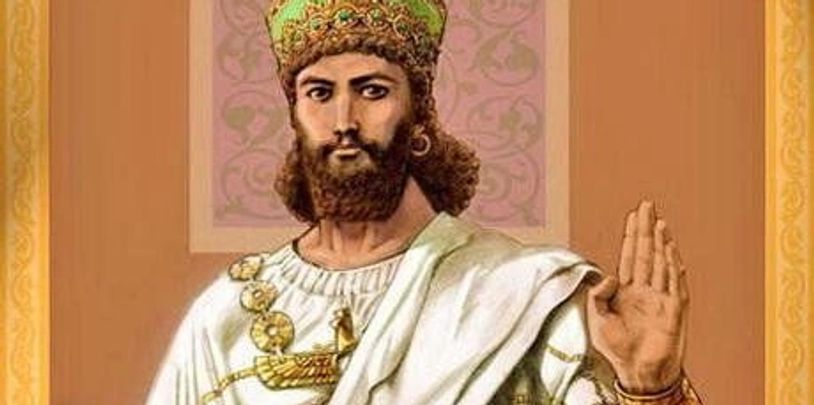The Very First Human Bill of Rights in 538 BCE.

A 2,600 year old clay cylinder bears what has been called the world’s “First Human Rights Charter” and was inscribed under the direction of the Persian (Now Iran) ruler "Cyrus the Great" in 538 BCE.
The Persian were the "First People" in history to give men and women equal rights, abolish slavery and write the very first human and animal bill of rights in 538 BCE. The fortification tablets at the Ruins Persepolis reveals that men and women were represented in identical professions and that they received equal payments as skilled laborers and that gender was not a criterion at all.
The Declaration of "Human Rights" written by "Cyrus the Great" has been hailed as the first charter of human rights, predating the Magna Carta by nearly two millenniums and in 1971 the United Nations was published translation of it in all the official U.N. languages. It is now kept in the British Museum and it is no exaggeration to say that it is one of the most precious historical records of the world. Also a replica of the "Cyrus Cylinder" is kept at the "United Nations" Headquarters in New York.
10,000 Years of Persian Civilization.
Sa’adi Poetry Inscribed On United Nations Building Entrance.

Iranian poet Sa’adi, from the 13th century, is one of the major influential Persian poets of the medieval period. Sa’adi is best known for his works ‘Gulistan’ and ‘Busan’, poetry which emphasized a unity in mankind, an interdependence regardless of social barriers and labels.
The sons of Adam are limbs of each other,
Having been created of one essence.
When the calamity of time affects one limb,
The other limbs cannot remain at rest.
If you have no sympathy for the troubles of others,
You are unworthy to be called by the name of a Human.